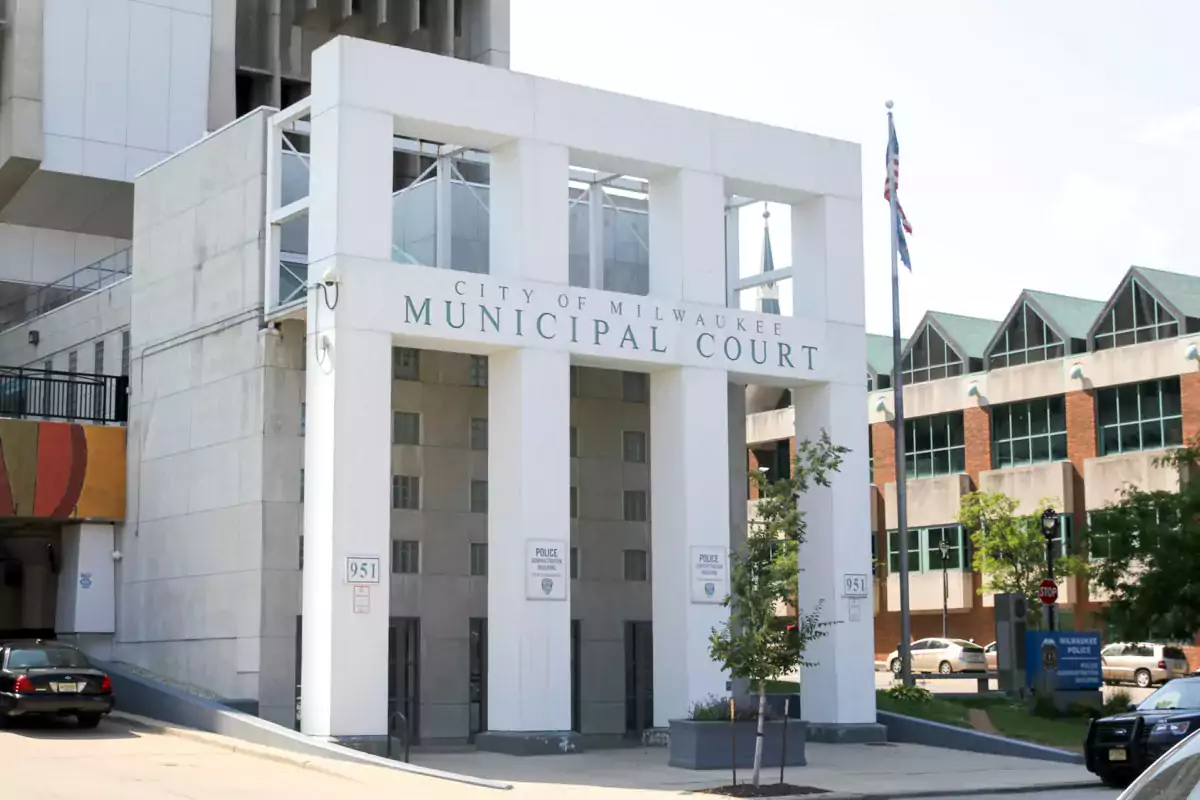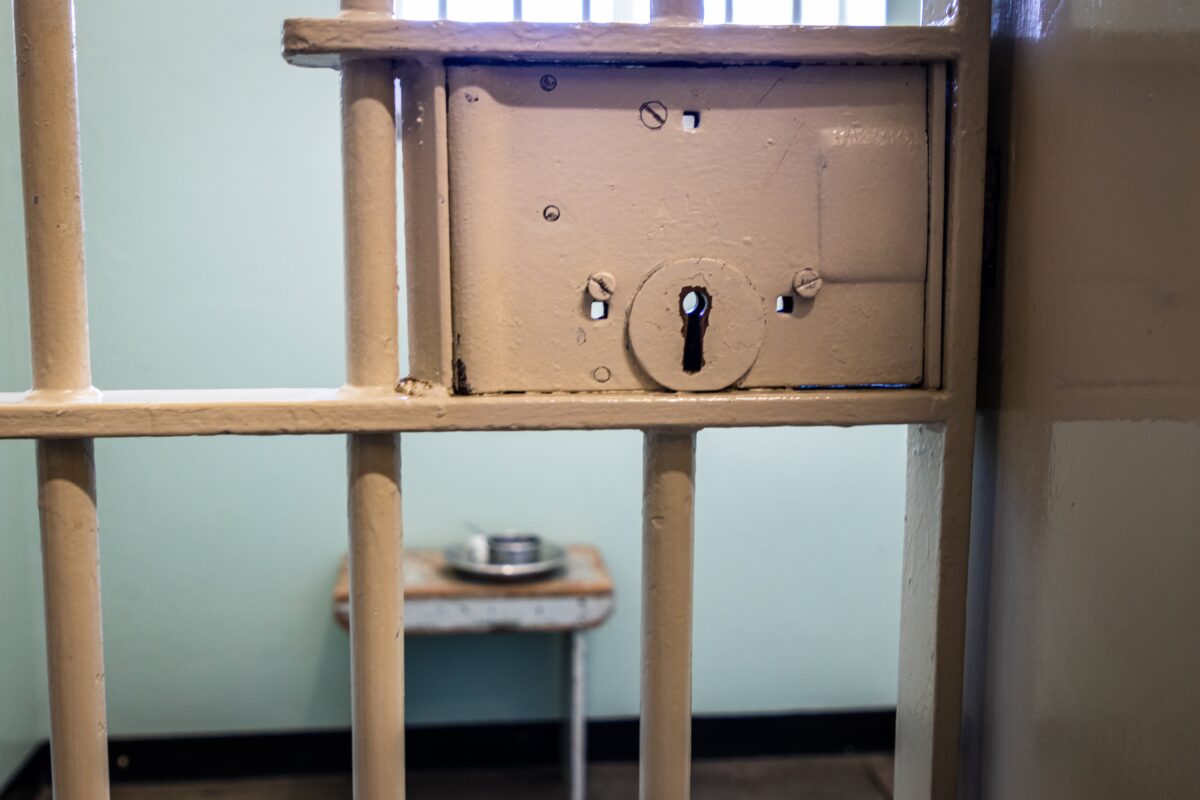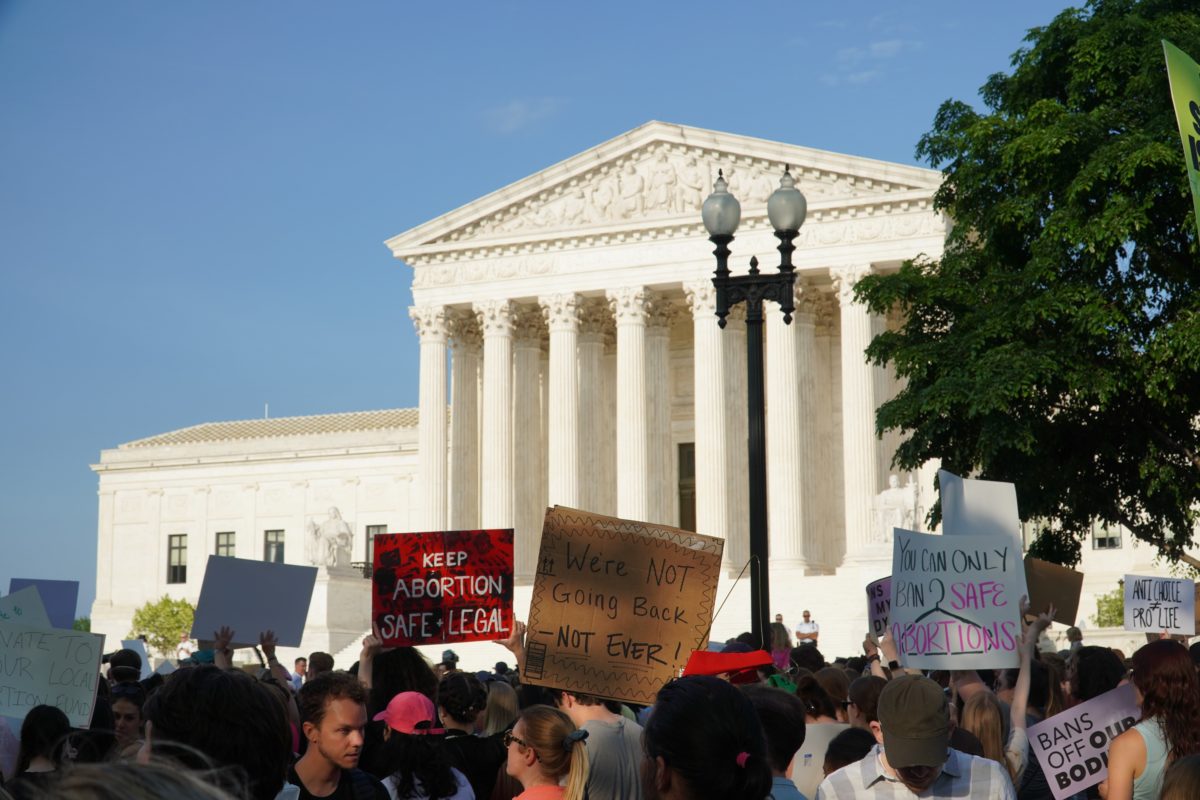Our Impact
The Appeal seeks to catalyze change within and to the U.S. criminal legal system.
We define our impact as changes that reduce harm at a large, systemic scale; directly on individual lives; and shifts in public discourse—as well as significant steps towards these changes. We track our impact on four key audiences: Institutional, Community, Individual, and Media.
The Appeal’s stories have sparked protests and grassroots activism, inspired legislation that reduces policing and incarceration, and shaped the national narrative about justice and punishment.
Read more about our impact:
2023 Impact Report | 2022 Impact Report
Recent Impacts

Legislation Introduced to Repeal Felony Murder | Arizona
In Feb. 2024, Arizona lawmakers introduced two bills to repeal felony murder in direct response to our reporting on the events of Jan. 11, 2019, when a Phoenix officer shot 19-year-old Jacob Harris in the back as he ran away. The state’s felony murder law allowed Jacob’s three friends—then-aged 14, 19, and 20—to be charged with his murder.
The Appeal’s six-month-long investigation uncovered false or misleading law enforcement statements about the shooting, and revealed that officers had deleted text messages related to that night. We also obtained thermal footage recorded by a police aircraft, which contradicted the Phoenix Police Department’s narrative of what happened that evening.
The investigation ignited a firestorm of outrage, prompting grassroots activism and demands for further state and federal action.
In the wake of our reporting, organizers formed two coalitions—The Justice for Jacob and Free the Phoenix Three—to support Jacob’s friends and his father, Roland. The coalitions and Roland have both met with officials from the Department of Justice, which is investigating the police department for its excessive use of deadly force.

Incarcerated People Receive Medical Care | Massachusetts
Dental care drastically improved for one incarcerated man in direct response to our reporting on inadequate care in Massachusetts prisons.
Numerous incarcerated individuals told The Appeal about their struggles with yearslong waits for dentures and basic dental care due to delays by Wellpath, the state’s prison medical provider and the country’s largest prison healthcare company. This included one man who suffered a broken front tooth after biting into prison food in 2021. A dentist recommended he be fitted with a removable prosthetic tooth, but his request was denied because he was not within six months of his release date, as required under Wellpath and Department of Correction policies.
Shortly after our reporting, the man was finally fitted for a new front tooth.
Our approach of centering the experiences of incarcerated individuals also drew the attention of U.S. lawmakers. In Dec. 2023, U.S. Senators Elizabeth Warren and Edward J. Markey of Massachusetts sent a letter to executives at Wellpath and its parent company, private equity firm H.I.G. Capital, calling out the company’s failures to provide adequate care and requesting detailed information about the company’s Massachusetts operations.
The letter also lifted up incarcerated voices by quoting the individuals in The Appeal’s reporting, who reported that “Wellpath is by far the worst medical provider I’ve seen in my 38+ years of incarceration,” and that the company’s care was “a nightmare.”

Alternatives Program Continues | Wisconsin
Milwaukee’s court diversion program, at risk of being canceled, was allowed to continue operating for now, after reporting explored the questionable process judges used to sever the organization’s contract.
The Appeal reached out to Wisconsin Watch and Milwaukee Neighborhood News Service to collaborate on the initial story covering attempts to cancel JusticePoint’s contract in May 2023, months before its scheduled expiration at the end of the year. JusticePoint helps provide assessments and referrals to treatment or community service for people facing civil violations, such as illegal parking or loitering. In the previous eight years, the program served 11,000 clients, helping them get support and avoid harsh punishments. Yet judges tried to eliminate the program, without any replacement plans.
After publication, an appeals court ruled that JusticePoint, which has been running since the 1980s and was on the verge of being forced to halt all services, could continue to operate while the organization fights the contract cancellation.

Investigations Launched into Atlanta’s Jails | Georgia
Our relentless coverage of the dangerous and inhumane conditions inside Georgia’s Fulton County Jail and Clayton County Jail laid the groundwork for several federal and state investigations.
In July 2023, the Department of Justice launched an investigation into Fulton County Jail based on reports of “serious allegations” of unsafe living conditions, violence and poor medical care.
U.S. Senator Jon Ossoff extensively cited The Appeal’s investigative reporting in a September 2023 letter to U.S. Attorney General Merrick Garland requesting a Department of Justice investigation into the Clayton County Jail. Ossoff quoted one of The Appeal’s sources who pleaded for the DOJ to intervene, with Ossoff writing, “I echo this detainee’s call and ask for your assistance.”
That same month, Georgia state senators announced an investigation into Fulton County Jail, including an examination of its living conditions.
Following media coverage by The Appeal and other outlets, Ossoff earlier launched a Senate Human Rights Subcommittee investigation into conditions at several jails, including Clayton County Jail and Fulton County Jail.
In 2023, the sheriffs who oversee both jails arrested multiple employees and contractors for violent behavior or providing contraband items, likely due to increased media scrutiny. Conditions also appear to be improving. A detainee in Clayton County Jail told The Appeal our reporting led to the return of outdoor recreation time several times a week. “We’re getting fresh air,” he said.

Children Moved Off Death Row | Louisiana
Children who were incarcerated at Angola prison’s former death row unit were transferred out of the state prison in Sep. 2023, after a judge ordered their removal. This change came in the wake of considerable media coverage led in part by The Appeal.
The Appeal uncovered crucial details about the children’s living conditions and medical care, including reports that the children had been locked in windowless rooms without working air conditioning at the height of summer. This latter reporting was cited in an ACLU lawsuit on behalf of the incarcerated children. The Southern Poverty Law Center also cited our coverage in a letter calling for a U.S. Department of Education investigation.

Victim Released by ICE | California
A woman was released from ICE custody shortly after The Appeal published her experiences as a survivor of sexual abuse by federal prison staff. We reported on the government’s plans to deport this woman and dozens of other immigrant women who were targeted in a notorious sex abuse scandal at FCI Dublin in California.
Under the Victims of Trafficking and Violence Protection Act, victims of certain crimes, including sexual assault, are eligible for a U visa, which provides temporary immigration status and the possibility of permanent residence. But authorities did not extend these women the protection of federal law. At the time of publication, at least 26 women faced deportation and 11 had already been deported.

Extreme Sentencing Repealed | Washington State
Washington State repealed the practice of enhancing adult sentences due to prior juvenile offenses, after The Appeal’s powerful commentary about the practice’s unjust impact on extreme sentencing helped stir support for the new legislation.
By automatically giving adults longer sentences based on their prior involvement with the juvenile system, the practice essentially “eroded the distinction between children and adults in the criminal legal system,” wrote Contributing Editor Christopher Blackwell and his wife and co-author, Chelsea Moore. In effect, people were being punished twice for things they had done as children.
Because nearly 20% of people sentenced in Washington State have a prior juvenile conviction, thousands of people will now receive significantly lower sentences as a result of the legislation.
This work contributed to Blackwell winning the 2023 Nonprofit News Award for Breaking Barriers.

Federal Investigations of Women’s Prison | Florida
Federal officials inspected FCI Tallahassee in the two months following our Apr. 2023 investigation detailing rampant sexual abuse inside the federal women’s prison in Florida.
In May 2023, the Department of Justice (DOJ) Office of the Inspector General conducted an unannounced visit to FCI Tallahassee, which found “several serious operational deficiencies” at the facility. The Inspector General testified about these disturbing conditions before a U.S. Senate Committee in Feb. 2024, saying they had led to “glaring and disturbing” violations of prisoners’ rights.
In June 2023, the DOJ’s Sexual Abuse Facility Enhancement and Review (SAFER) team made its first visit to several federal women’s prisons as part of a review of staff misconduct at Bureau of Prison facilities. The team spoke directly with women in custody as part of ongoing efforts to root out sexual abuse.
The Appeal’s investigation found systemic issues of sexual abuse by staff at FCI Tallahassee. Incarcerated women detailed a culture of cover-up and retaliation that had allowed repeat offenders to continue preying on prisoners. Guards had threatened and harassed family members of victims. Phone calls from the prison, including to a rape crisis hotline, were routinely monitored. Sources said the problem was much bigger than the few officially documented cases of staff abuse had indicated.
Later that month, a bipartisan group of lawmakers introduced legislation to establish a new oversight system for federal correctional facilities—including an Ombudsman who would be responsible for investigating allegations of abuse. The measure is still under consideration.
This work was a finalist for 2023 Nonprofit News Award for Best Investigative Journalism.

Paper Mail Continues at Rikers Island | New York
In Mar. 2023, New York City’s Board of Correction rejected a proposal to ban paper mail and packages at the Rikers Island Jail Complex. Local and state officials and advocacy groups had rallied in opposition to the proposed ban, with the city comptroller, a city council member and the NYCLU citing The Appeal’s commentary about the importance of paper mail while incarcerated.
The writer, who had previously been held at Rikers, described in Feb. 2023 how paper mail had given him hope while incarcerated and “is one of the few things that keeps prisoners feeling human.”
“When you are incarcerated, a physical letter is a small marvel, a message in a bottle, a reminder of who you are, where you came from, who still cares about you, and why you should stay out of trouble and come home soon,” he wrote.

Alternatives Program Avoids Defunding | Georgia
A pre-arrest diversion program in Fulton County, Georgia, was able to continue its work after The Appeal’s reporting raised awareness about proposed funding cuts that could have led to its closure.
At a public meeting in Dec. 2022, dozens of local residents voiced their support for the Policing Alternatives & Diversion (PAD) Initiative, which keeps hundreds of people out of the county’s overcrowded jail. They were ultimately successful in pushing county officials to backtrack on threats to cut funding.
Clara Totenberg Green, then-community engagement manager at PAD, said, “The Appeal’s reporting on the horrific conditions inside the Fulton County jail in Atlanta had a major impact on the debate in our city regarding the expansion of the jail … Their pieces were widely shared, referenced by advocates and policymakers alike, and shone light on a story that is too often ignored.”

Judge Blocks Law Criminalizing Abortion Care | Arizona
A federal judge blocked Arizona’s fetal personhood law based in part on our reporting on the state’s convoluted and confusing abortion laws. The ruling prevents prosecutors from using the fetal personhood law to bring criminal charges against people who provide or obtain abortions.
In June 2022, our reporting illustrated how the then-impending overturn of Roe v. Wade would leave local district attorneys in charge of enforcing state anti-abortion measures. The fall of Roe meant Arizona prosecutors would have enormous discretion when criminalizing abortions, due to the state’s many different abortion laws.
One day after the Supreme Court overturned Roe v. Wade, the American Civil Liberties Union of Arizona and the Center for Reproductive Rights filed an emergency motion requesting an injunction on the state’s so-called fetal personhood law. They claimed the statute was unconstitutionally vague, and cited our reporting to argue that the court’s decision had “unleashed chaos” in Arizona around issues of abortion access. A judge agreed and issued a ruling stopping the fetal personhood law from being used to criminalize abortion care.

Federal Investigation into New York Police Department | New York
In June 2022, the U.S. Department of Justice launched an investigation into the New York Police Department’s Special Victims Division (SVD) following our years of reporting on systemic issues at the SVD, including our investigation documenting how officers routinely mistreat sexual assault survivors.
The DOJ probe is assessing whether the SVD engages in a “pattern or practice of gender-biased policing” and will probe its interactions with survivors and witnesses, staffing, and the services and support offered to survivors. “Over the last several months, we have learned concerning information from a variety of sources of historical issues about the way the Special Victims Division has conducted its investigations for many years,” said U.S. Attorney Breon Peace for the Eastern District of New York in a Justice Department statement announcing the probe.
Our Dec. 2021 investigation found the NYPD spent years neglecting serious structural problems affecting SVD. In multiple cases, women were assaulted and children were killed after detectives failed to appropriately investigate reports of rape or abuse. We also documented staffing issues at SVD, which had filled the unit with officers who had little to no investigative experience and almost no specialized training.
Two months after The Appeal’s investigation, the NYPD transferred the SVD’s commander, Mike King, out of the division. In May 2022, the NYPD commissioner told City Council members that she had introduced a new policy to reduce turnover and promote detectives within the SVD—something our reporting specifically identified as an issue within the division.
This investigation won the 2022 Nonprofit News Award for Best Investigative Journalism.

Individual Released From Prison | New York
Reginald Randolph, a then-58-year-old man who is blind in one eye and has struggled with chronic homelessness, mental illness, and substance use disorder, was released from prison after The Appeal’s reporting on his case.
Randolph was initially sentenced to serve two to four years in state prison for stealing cold medicine, although he’d already been detained at the Rikers Island jail complex for more than a year. To increase local awareness of this story, The Appeal co-published with New York Focus.
Our piece prompted immediate public outcry. In response to our reporting, New York state senators sent a letter urging New York Governor Kathy Hochul to commute Randolph’s prison sentence.
Within two months of publishing, the prosecutor’s office agreed to release Randolph from prison while his appeal was pending.
